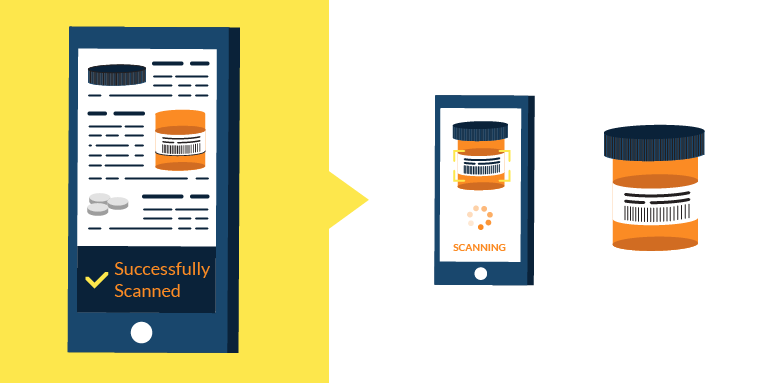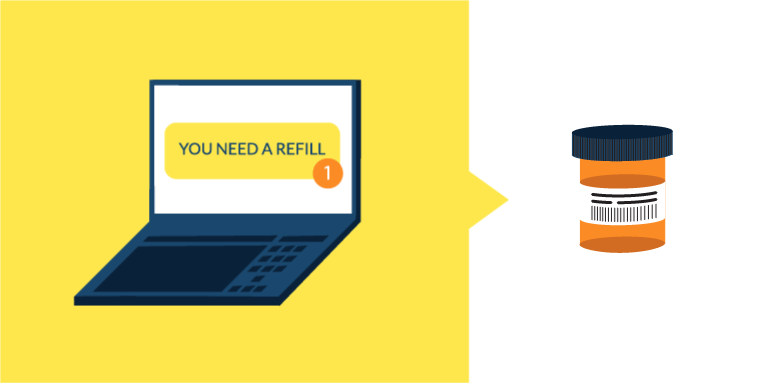Blockchain solutions to pharmaceutical problems in healthcare
In the multitude of cases that blockchains could be applied in healthcare, one of the prospects of these implementations is in pharmaceuticals. Blockchain technology has the potential to change the way pharmaceuticals drugs are tracked and distributed, providing doctors with the means of giving a more effective treatment while also having an easier time maintaining the therapy.
The main goal is on how to increase patient-related measure outcomes (PROMs) while also decreasing the cost and effective time needed for different services.
From the previously mentioned blog, Healthcare and Smart Profiles, we have mentioned some statistics, and one of them in particular stands out:
- On a yearly average, 1,500,000 Americans get sick, injured, or die over errors in prescriptions, dispensing, and taking medications.
That is one and a half million lives lost that are attributed to human error! If there is any reason to try change anything in pharma, this would be it.

Pharma in the Supply Chain
The blockchain application in pharmaceutical supply chain has incredible potential. In the time we have spent during our work in Proof-of-Concept (PoC) services, we have seen a lot of resources being poured in PoCs of blockchains and supply chains. And for good reason. The supply chain procedures require a web of functions, made possible from key people within the system, to work in sync, all while providing very little transparency to the consumer, causing a hint of distrust when it comes to item genuineness.
Supply chain transparency could give trust back to the consumer (in this case, the patient) since this measure removes all possible fraud attempts. Within a supply chain blockchain, each raw material could have its own identity confirmed with public keys embedded on them.
Through the use of a communication protocol such as the Matrix protocol explained in one of our previous blog posts, two blockchains could, theoretically, communicate and transfer data with one another.
With private blockchains exchanging data we could provide an interface for both doctor and patients, increasing PROMs. Doctors could trace back the item to prove the truthfulness the item being bought, with the final product having all the necessary info to also give the patient an interface which can be used to clear suspicion over any drug/item being bought.
Although not strictly pharma, companies such as Provenance are doing exactly that. Through their successful use of blockchain technology, they have developed a method for checking the personal story of each item you buy. The potential is amazing.

AI and Smart Health Equipment
Currently, the most interesting AI & Blockchain collab that is happening is the Google DeepMind project. The project promises a possible blockchain solution for verifiable healthcare data auditing, using deep learning AI. DeepMind uses the neural network developed from big data over the years, to try and find solutions, also possibly solving a key issue in the pharmaceutical industry.
Real-time information about a patient’s drug history could help solve the problem of human error that we mentioned above. AI could be programmed to send notifications when the patient is running out and could refill the right drug and correct amount, negating any possibilities in human error.
Besides the DeepMind project, AI has a lot of other potential uses.
Smart health equipment will definitely prove to be extremely helpful in pharma and PROMs.
This equipment has valuable data stored in them that could help doctors tremendously.
Equipment such as:
- Pedometers
- Heart monitors
- Sleep monitors
- Blood pressure monitors
These sets of data, fetched in real-time, could be sent to an AI system for processing and they could determine possible health issues, or even do a prescription proposal automatically.
These are staggering feats for healthcare. By providing the means of standardizing the technology and data, we could pave the way for blockchains to change the way we handle healthcare data, fix the trivial errors, and provide an increase in PROMs through better, faster, and newer services.